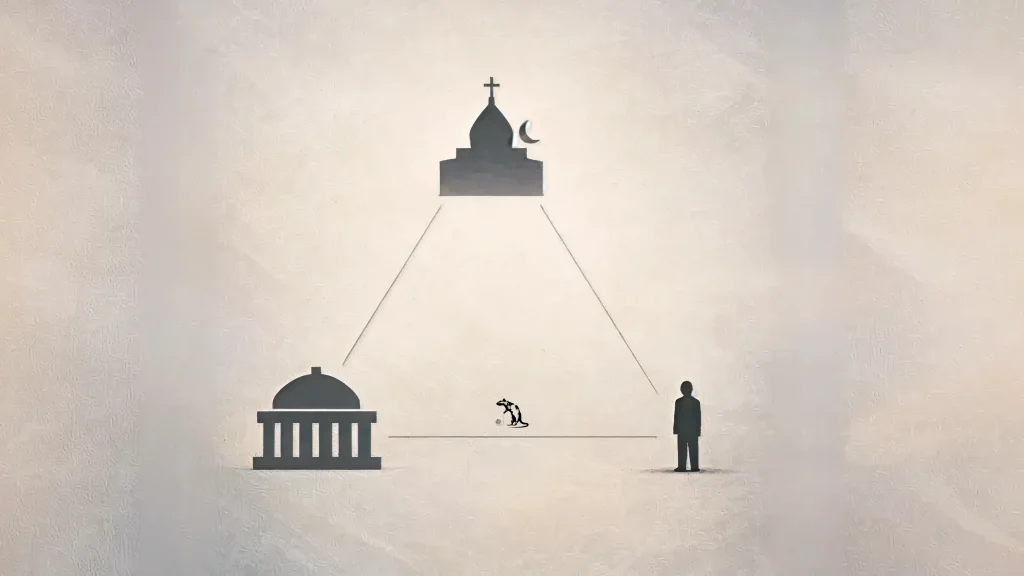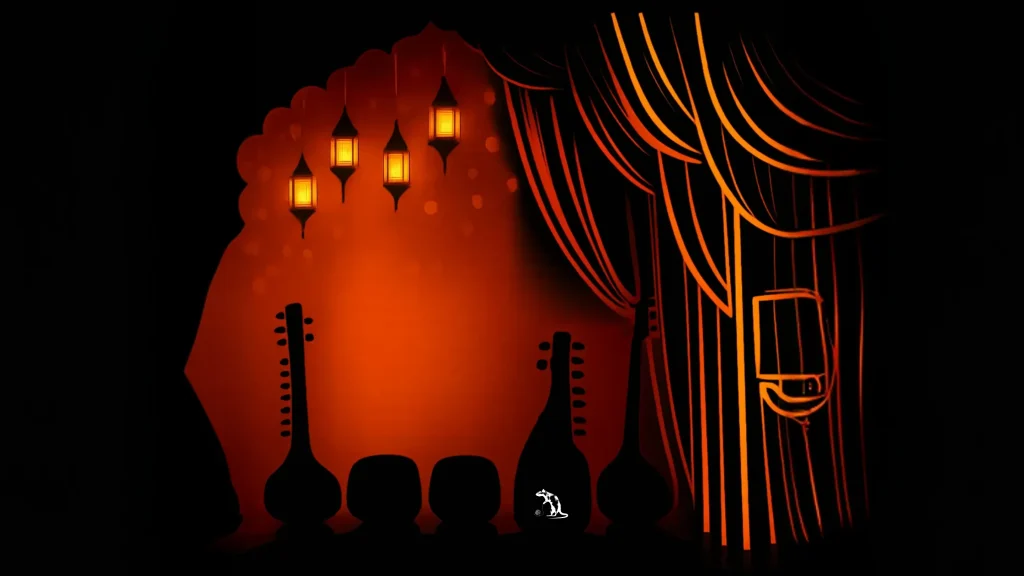Our Identity is no longer in crisis; it’s lost.
It always begins with a chant, a crowd rising behind an idea that promises purity. Someone holds a flag, someone shouts a slogan, and soon a thousand voices echo the same words. At that moment, nobody pauses to ask who benefits from all this noise. Nobody stops to question whether the fire they are feeding is meant to warm or to destroy.
Pakistan has long lived in the tension between faith and reason. It was born out of belief, a dream of identity and justice, but over time, that belief was transformed into ideology. What began as a collective yearning for dignity became a contest over who owns God. Religion, once a source of meaning, turned into a tool of power. Every decade added a new layer to this confusion: the wars of the 1980s that baptized blood in the name of freedom, the 2000s that turned global politics into a personal creed, and the present, where morality is outsourced to influencers, anchors, and clerics alike.
Extremism in Pakistan is not just religious; it is emotional. We exist in a state of perpetual reaction, moving from one outrage to the next. One side calls for divine vengeance, the other for imported enlightenment. Both believe they are saving the nation, yet both speak with the same arrogance of certainty. The cleric declares that the West is corrupt and faithless, while the liberal insists that religion is backward and primitive. What they share is not truth, but the refusal to be questioned.
The tragedy is that skepticism—the instinct to question, to think, to pause—has been recast as betrayal. To doubt the sermon is to risk blasphemy, and to challenge the Western narrative is to risk being called regressive. We have lost the courage to think freely because every idea must wear a label before it is heard. We are told that loyalty lies in obedience, that faith means silence, that progress means imitation. All of this only feeds a deeper decay: a nation that no longer knows how to think for itself.
The cleric and the liberal are not opposites; they are reflections of the same insecurity. Both build their identity around who they oppose. Both thrive on followers who surrender their agency. Both offer ready-made truths for minds too tired to search. In this way, extremism becomes less about belief and more about belonging. People are drawn not to ideas, but to tribes that promise them certainty in an uncertain world.
Deradicalization, then, cannot come through policy or propaganda. It begins in the quiet act of thinking. True rebellion is not fought with guns or hashtags; it begins when an individual decides to doubt the scripts handed to them. To look at every slogan, every sermon, every speech, and ask: Who profits if I stop thinking? This kind of skepticism is dangerous because it leaves you without a side, yet it is also liberating because it brings you closer to the truth.
A generation is now growing up amid ideological noise. They mock the mullah but worship celebrity atheists. They chant for Palestine but ignore persecution at home. They speak of free speech but cancel anyone who disagrees. Their rebellion is aesthetic—a pose, not a principle. Yet somewhere in this chaos lies a hunger for meaning. People are exhausted from outrage. They want something real, something human.
Perhaps deradicalization is not about moderation, but maturity. It is not about meeting halfway between right and left, but learning to live without extremes. It is about developing the ability to sit with contradiction, to hold faith without fanaticism, to embrace progress without arrogance. This maturity cannot be taught through seminars or reforms; it grows in classrooms where questions are welcomed, in homes where children are allowed to doubt, in mosques and cafes where conversation replaces command.
Our crisis is not just political or religious; it is spiritual. We have lost the will to think alone. Nietzsche once called it the herd mentality—the instinct to belong at any cost, to trade truth for comfort, to let the crowd think for you. That is what conformity looks like in Pakistan today. The mullah and the influencer are no different; both feed the herd what it wants to hear. One sells divine certainty, the other sells intellectual rebellion, and both depend on followers who never stop to question.
Nietzsche warned that the herd will always hate the thinker because the thinker reminds them they are free, and freedom is terrifying. We have built a culture that glorifies obedience and punishes thought. Our schools prioritize memorization over reflection, our pulpits favor submission over sincerity, and even our social media, where we pretend to be free, favor outrage over understanding.
We have become a nation afraid of solitude, afraid of standing apart from the noise. Yet every genuine idea, every revolution of meaning, begins in isolation. The person who dares to think differently, who dares to doubt what everyone repeats, is not a traitor; they are the beginning of something new.
The liberals they mock today—the few who still insist on thinking—may not have all the answers. They may be flawed, elitist, even out of touch, but at least they are asking questions in a culture that punishes curiosity. The real threat to this country is not religion or secularism; it is the absence of inquiry. People who no longer question are easy to control.
Pakistan does not need more saviors. It needs skeptics—ordinary citizens who can tell the difference between faith and manipulation, between truth and theatre. People who are willing to read before reacting, to listen before labeling. People who can hold on to a belief without surrendering their minds.
The first act of deradicalization is to stop romanticizing extremes, to stop mistaking noise for conviction and chaos for courage. It is to recognize that rebellion is not in burning but in building, that progress begins not when we shout the loudest but when we finally learn to think quietly.
And perhaps one day, when the next mob gathers in holy fury, someone will whisper, not in defiance but in clarity: We have burned enough. It is time to understand.



